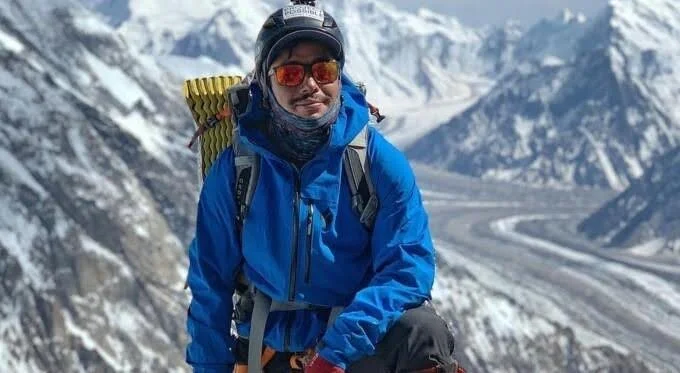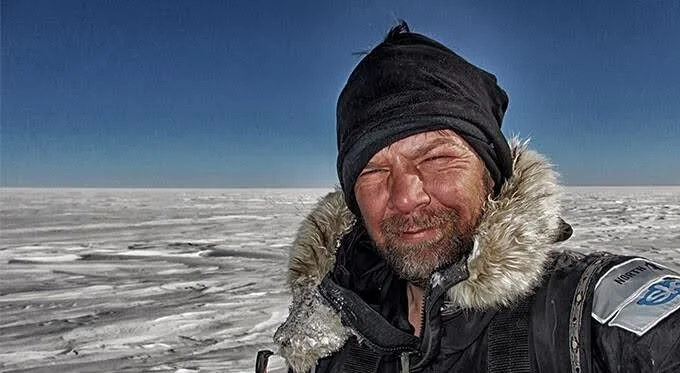Paralympic champion Naomi Riches on turning adversity into adventure
Naomi Riches MBE is a female inspirational speaker whose extraordinary resilience has taken her from overcoming visual impairment to standing on the top of the Paralympic podium.
As a Paralympic gold medallist and former member of the GB Rowing Team, Naomi has broken barriers both in sport and beyond - including setting a Guinness World Record for rowing the River Thames solo, a challenge that tested every limit of endurance and mindset.
Her journey is one of redefining what’s possible. Through her talks, Naomi encourages audiences to embrace adversity, find purpose in persistence and unlock their own inner strength.
In this exclusive interview with The Champions Speakers Agency, Naomi reflects on the lessons sport has taught her about resilience, leadership and personal growth - and how anyone can train their mind to go the distance.
Q1. You’ve said that rowing “found you” rather than the other way around. Can you take us back to that moment - how did your journey from a visually impaired student to a world-class athlete truly begin?
Naomi Riches: “In all honesty, it found me. I tried rowing briefly at college. I was at a college for blind and visually impaired children in Worcester, and it was a wonderful time in my life having had a very tricky education in mainstream school, being the one disabled child in a school of 800.
“I tried rowing and I had a go, and it was really good fun. So, when I went to university, I went to my local rowing club, to the university, and I said, ‘I'd like to learn to row, please.’ And they said, ‘Really sorry, we're not doing learn to row courses at the moment.’ And I went, ‘Oh, well, I'll give that up as a bad job.’
“I was just a very unhealthy student doing, you know, bicep curls at the student union bar. And then in my second year of uni, I got a phone call one day from a man called Simon, and he said, ‘Naomi, I hear you've tried rowing at college, and I hear that you quite enjoyed it. Would you come and try for the Great Britain disabled rowing team?’
“And I went, ‘Yeah, yeah, but why?’ And he said, “Well, in all honesty, you tick some boxes.
“‘You're tall, you're a girl, and you can't see very well, and we need you because we have no girls, and it has to be a mixed crew, and we've only got boys.’ And I went, ‘Uh, okay, yeah, fine.’
“So, I went down to London and trialled, happened to be fast enough, and then four months later was packed onto a plane with my team and a bag full of GB kit and sent off to Spain to compete in my first World Championships - and we crossed the finish line first.
“So, world champion in a sport I'd been doing for four months. It was quite a crazy learning curve, but it was the opportunity more than anything - that for the first time in my life, somebody had said to me, ‘You can because you're registered blind.’ Not ‘You can't,’ not ‘We're going to try and make it work,’ not ‘Despite the fact.’ It was ‘You can because of your disability represent your country.’
“And I was like, ‘Well, yeah, cool, brilliant.’ And then obviously the rowing career developed, became a Paralympic sport in 2005, and then Beijing was suddenly on the cards.”
READ MORE: From the SAS to the summit: How Nirmal Purja proved that teamwork can conquer the impossible
Q2. Competing at the highest level inevitably tests both physical and emotional endurance. Was there a particular moment in your rowing career that pushed your resilience to its absolute limit?
Naomi Riches: “There are many things that test your resilience as a rower or as a sportsperson.
“For rowing, it's often repeatedly getting up at silly o’clock and rowing with hands covered in blisters. But there are certain situations that will test your emotional resilience and your mental resilience more than others.
“Now, in 2010, we'd become a Paralympic sport. We debuted at the Beijing Paralympic Games, and because of that, people wanted to be in the sport now. You've got Paralympic status. You're on that biggest stage, and more people turn up at trials who have disabilities, who have maybe rowed for a while and they want to see if they can make the crew.
“Somebody showed up at 2010 trials who was just the most phenomenal athlete. She had the same disability as me - visually impaired, registered blind - and she had a massive score on the rowing machine, she was lifting heavy weights, and she was just fit and brilliant. And I thought, “Oh God, it's only two years to London. How am I going to do this?”
“I ended up putting a lot of my time and energy into trying to be another version of her.
“I almost went back to this little girl at school that wanted to be liked and wanted to fit in and wanted to be as good as other people. I ended up wasting so much energy on something I had no control over.
“So needless to say, I didn’t make it into the 2010 World Championships because she beat me by half a second to a seat in that crew.
“But I went away, trained on my own with some support from Marlow Rowing Club, that was then my local club, and really had to focus in on, ‘Okay, what am I good at?’
“I can control what I’m doing training-wise. I can control the scores I have on the rowing machine and my diet, my sleep patterns, how I look after myself - but I cannot control what this girl’s doing, and there’s no point in me trying.
“It was a really hard lesson to go, all I need to do is beat her on trials day. I don’t need to do anything else. Just keep it simple. Take the emotion out of it. Focus on the facts. Beat her on trials day. That’s it.
“So then, when it came to London, I beat her by eight and a half seconds, and I went to London.”
YOU MAY ALSO LIKE: Explorer Mark Wood: The chilling truth about our warming planet
Q3. Setting a Guinness World Record is no small feat. What did that challenge teach you about personal endurance, goal-setting, and the power of self-belief?
Naomi Riches: “The Guinness World Record was quite a crazy one. It was, I think, quite a lot bigger than I expected it to be.
“At 2012, I was part of a group of five, and obviously the coach then six - she couldn’t row the race with us, but she was on the bank watching and probably biting her nails.
“I thought, I want to do something that is just mine, but I want to do it for the right reasons - and that was for me sitting in a coffee shop having a conversation with the lady who ran a charity that I was patron for.
“I said, ‘I want to do something for you. I want to do something to raise the awareness of the ability of people with a disability.’ And I thought it was a really good idea to row the length of the navigable Thames from Lechlade to Gravesend because it’s 165 miles.
“If I do it in a single sculling boat, then other people will have to steer me - so it’s going to be a sense of trust and good relationship building with the people who steer me, that I get on with and understand, and we can work together, but also a test of endurance.
“It tested me. It absolutely tested every fibre of my being. I think it was just six seconds short of 48 hours I did it in.
“And one of the things it taught me more than anything is that sometimes you can see your goal, you know where you’re headed, and there are people around you that can help you, that can cheer you on, that can offer a service or a specialism that you don’t have. But really, there’s no one else that can get you there except for you.
“When you’re tired, when you’re sore, when you’re hungry, when you’re emotional, when you’ve been rowing for 45 hours with half an hour’s sleep, the only person that can pick up and carry on is you.
“Nobody can do it for you. Even though they can all see your goal, they can say, “It’s so close, I can touch it,” but you’re the only one that can pick up your oars and go again.
“That was the point, really, for me. I learned a lot about myself in that process - how to do things on my own, but also who to trust and who are the people around you that are going to shout for you and support you. But, yeah, no one else but you can achieve what you want to achieve.”
This exclusive interview with Naomi Riches was conducted by Chris Tompkins of The Motivational Speakers Agency.
READ NEXT: From fighter jets to space dreams: Nicola Winter on building mental resilience



